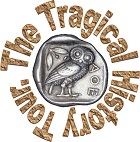
Chapter Twelve
1848 turns into a busy year.
As I mentioned last time, civil unrest seems to go in a generational cycle. After the mixed results of the Revolutions of 1830, another 18 years passed quietly before the world went berserk again in the Revolutions of 1848. The 1830 July Revolution in France had left a lot of issues unresolved. The French ruling class still played a kind of keep-away with the common man, holding power high out of reach and laughing as the lesser folk jumped uselessly. The new 1831 election law in France grudgingly lowered the taxpaying qualification for voting down to 200 francs annually, giving the vote to a whopping 167,000 Frenchmen, about 0.5% of the population. As Karl Marx noted, "It was not the French bourgeoisie that ruled under Louis Philippe, but one faction of it: bankers, stock-exchange kings, railway kings, owners of coal and iron mines and forests, a part of the landed proprietors associated with them – the so-called financial aristocracy."Ⓐ
Economically, 1848 was a bad year in Europe. The potato blight that had devastated Ireland was also sweeping potato fields worldwide. Starving peasants flooded into the cities looking for work or charity; however, the business cycle had recently taken a downturn, so there were not enough jobs, even for long-term residents. Factory work dried up. Falling cash flow meant falling tax revenues that couldn’t support public assistance, but the monarchs running Europe just did not care.
The first blood was drawn in Milan at the beginning of January. To keep France from expanding again, northern Italy had been attached to the Austrian Empire after the Napoleonic Wars, although no one consulted the Italians about it. This stretch of Italy had the most advanced economy in the empire, and their taxes supplied about a quarter of the Austrian government’s revenue. All that money was flowing out of Italy to Vienna, and the Italians got nothing in return. Liberals in Milan planned a gesture of defiance to encourage the Emperor to share.
The tax on tobacco was a major source of revenue for the Empire, so the Italians decided to boycott tobacco in the New Year. It went badly. As you would expect from a society that had just quit smoking cold turkey, tempers snapped. Within a few days, soldiers of the Austrian garrison taunted and tempted the Milanese by lighting up and blowing smoke in the faces of Italians on the street. One angry Italian punched a soldier. The other soldiers clubbed the Italian with musket butts. Other Italians stoned the soldiers. The soldiers charged with bayonets, killing 5 Italians and wounding 59. It was an inauspicious start to 1848.
A bit of rioting by the hungry poor in Palermo and Naples scared the Kingdom of the Two Sicilies (as southern Italy was called) into taking their demands for reform seriously. The king released political prisoners and gave his country a constitution with civil rights. All up and down Italy and in the small lands of central Germany, other absolute monarchs glanced out the windows of their palaces, saw hungry mobs milling about and decided it would be best to grant them limited constitutions without delay.
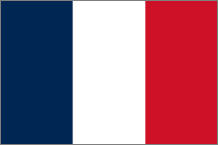 France
had strict rules against political meetings, so the opposition
had taken to holding massive “banquets” instead. After all, no
one could deny a Frenchman’s God-given right to dine. If people
discussed a little politics after dinner, well, that was just
the wine talking. No danger there. However, with the air of
discontent growing in the city, the government banned one
upcoming banquet as a precaution. Unfortunately it was too late
to stop everyone from showing up anyway. While they were milling
about complaining, they talked themselves into taking action.
For the next few days, Parisians marched against all the
accumulated injustice of the monarchy, focusing most of their
anger on one especially despotic minister. When a march of
protesters stumbled across a line of troops, there was a brief
moment of confusion until a few mysterious shots rang out. The
troops followed this with several full volleys, leaving piles of
Parisians dead or wounded. The Parisians began carting the
bodies around in anger as protests swelled. Many local troops
defied royal orders and refused to turn out for duty in the
street leaving the government with barely enough troops to guard
vital public buildings. Finally, the king fired his hated
minister, but he had waited just a bit too long. By the time he
acted, the crowds were no longer satisfied with just that. The
King counted his troops, decided he didn’t have enough he could
really trust, so he abdicated. On February 24 civilian leaders
declared the birth of the Second Republic.
France
had strict rules against political meetings, so the opposition
had taken to holding massive “banquets” instead. After all, no
one could deny a Frenchman’s God-given right to dine. If people
discussed a little politics after dinner, well, that was just
the wine talking. No danger there. However, with the air of
discontent growing in the city, the government banned one
upcoming banquet as a precaution. Unfortunately it was too late
to stop everyone from showing up anyway. While they were milling
about complaining, they talked themselves into taking action.
For the next few days, Parisians marched against all the
accumulated injustice of the monarchy, focusing most of their
anger on one especially despotic minister. When a march of
protesters stumbled across a line of troops, there was a brief
moment of confusion until a few mysterious shots rang out. The
troops followed this with several full volleys, leaving piles of
Parisians dead or wounded. The Parisians began carting the
bodies around in anger as protests swelled. Many local troops
defied royal orders and refused to turn out for duty in the
street leaving the government with barely enough troops to guard
vital public buildings. Finally, the king fired his hated
minister, but he had waited just a bit too long. By the time he
acted, the crowds were no longer satisfied with just that. The
King counted his troops, decided he didn’t have enough he could
really trust, so he abdicated. On February 24 civilian leaders
declared the birth of the Second Republic.
In Budapest in the Hungarian parliament – a weak advisory body that helped the Austrian Emperor administer this territory – the populist Lajos Kossuth dared to speak openly for home rule and a constitution. When transcripts of the speech arrived in Vienna, democrats in the capital were stirred to rally for reform. The government suspected that the Austrian Army was not willing to slaughter their own people, so the crown compromised by dumping the authoritarian Chancellor Klemens von Metternich and granting a limited constitution to the people.
In Berlin, meanwhile, the Prussian people had greeted the news of the fall of the French monarchy with elation. A carnival atmosphere took over the city as people imagined a bright new day dawning all over the world. They considered their options and greeted one another as brothers. The Prussian government, however, would have none of this. They called in troops and sealed off the city. After a few stray protesters were shot down in casual confrontations, angry Berliners threw up barricades all over the city.
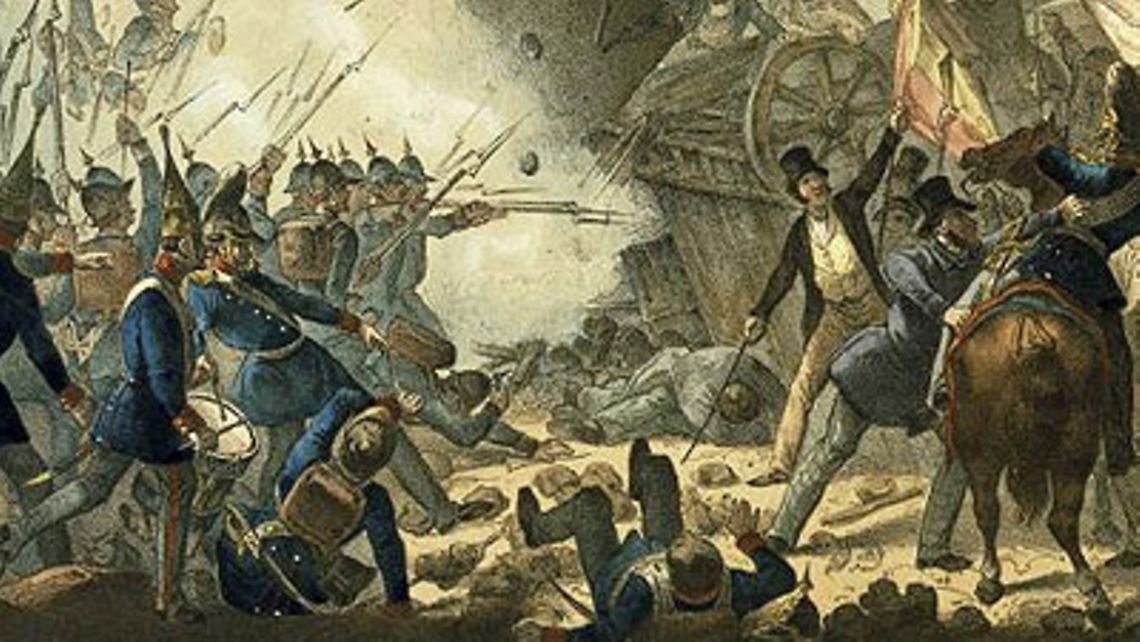 Unlike the
French and Austrians, the Prussian army had few qualms about
blasting apart the barricades with artillery and charging mobs
with bayonets. These soldiers were recruited from East European
peasantry and had little sympathy for these decadent urbanites.
Around 900 Germans (800 of them townspeople) died in just a few
days of bitter house-to-house fighting through the
tangled alleys of Berlin. The king of Prussia was horrified by
the slaughter and granted the people a constitution in remorse.
Then he fled to his country palace where courtiers with colder
hearts used his isolation to try to convince him to respond with
a firmer hand.
Unlike the
French and Austrians, the Prussian army had few qualms about
blasting apart the barricades with artillery and charging mobs
with bayonets. These soldiers were recruited from East European
peasantry and had little sympathy for these decadent urbanites.
Around 900 Germans (800 of them townspeople) died in just a few
days of bitter house-to-house fighting through the
tangled alleys of Berlin. The king of Prussia was horrified by
the slaughter and granted the people a constitution in remorse.
Then he fled to his country palace where courtiers with colder
hearts used his isolation to try to convince him to respond with
a firmer hand.
More rebellions against Austrian rule erupted in Milan and Venice, and now Italian nationalists tried to get the small states of the peninsula to pool their armies and drive the Austrians back across the Alps. They pinned their hopes on the Pope, who in addition to being spiritual head of the church, was also the secular prince of Rome and a neighboring strip of central Italy. They also hoped for help from the King of Sardinia, who, despite his title, ruled from Turin in the wealthy Piedmont region in the northwest Italian mainland, just below the Alps. Since the beginning of the year, these monarchies had been bullied into adopting constitutions and riding the wave of liberalism, but they weren’t happy about it.
The mobs pressured the princes of Sardinia, the Papacy, the Two Sicilies and Tuscany to send forces against the Austrian armies in the field. The combined Italian armies won their opening battles, but soon Pope Pius and the neighboring princes remembered that they didn’t actually want liberalism to succeed, so they called their troops home. Now the people turned against them. The Pope and the Grand Duke of Tuscany fled, and the mobs declared their lands to be republics.
Backlash
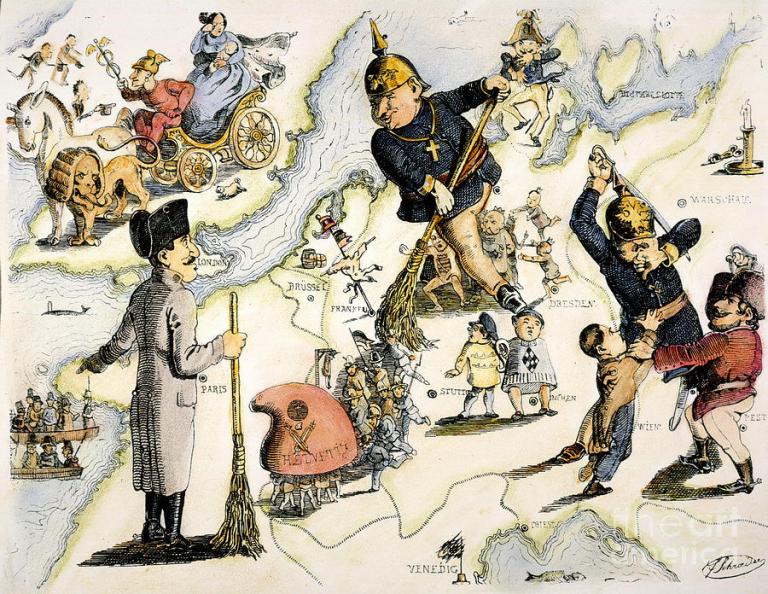 Almost every European
nation saw rumblings of some sort, but much of it passed
without unrest. Russia and Sweden quickly cracked down and kept
a lid on the brewing trouble. They tightened censorship,
mobilized the troops and shut down universities; they scattered
even the most innocuous gatherings, and immediately arrested
anyone who looked like they might have political opinions.
Denmark and the Netherlands went in the other direction. They
issued limited constitutions at the first hint of trouble and
defused the situation. Because liberals in Britain and Belgium
had already won major concessions in the 1830s, not many
citizens had accumulated enough complaints to get them out into
the streets. Politics in Spain and Portugal was complicated by
numerous radical ultra-monarchists who wanted even more God and
Crown in their public life. They couldn’t find common cause with
the radical leftists, so the centrist monarchies in the
peninsula were never threatened by a unified opposition.
Almost every European
nation saw rumblings of some sort, but much of it passed
without unrest. Russia and Sweden quickly cracked down and kept
a lid on the brewing trouble. They tightened censorship,
mobilized the troops and shut down universities; they scattered
even the most innocuous gatherings, and immediately arrested
anyone who looked like they might have political opinions.
Denmark and the Netherlands went in the other direction. They
issued limited constitutions at the first hint of trouble and
defused the situation. Because liberals in Britain and Belgium
had already won major concessions in the 1830s, not many
citizens had accumulated enough complaints to get them out into
the streets. Politics in Spain and Portugal was complicated by
numerous radical ultra-monarchists who wanted even more God and
Crown in their public life. They couldn’t find common cause with
the radical leftists, so the centrist monarchies in the
peninsula were never threatened by a unified opposition.
Splits soon appeared among the rebels all across Europe. In the multilayered Austrian Empire, the rebellion that began as a class struggle got sidetracked by ethnicity. Since the Polish nobility in the eastern province of Galicia were in favor of a liberal parliament and a Polish homeland, the Ukrainian peasants under them were opposed. In Bohemia, a surge of Czech nationalism scared the German upper class into returning their loyalty to the monarchy. The outburst of Hungarian nationalism scared the Romanian and Slovakian peasants under them into sticking with the Emperor. Pretty soon, the Emperor had found enough support to fight back and restore absolute power.
Meanwhile, the provisional government of the French Republic had started trying to alleviate the suffering of their urban poor by offering public employment to anyone who couldn’t find a job in the private sector. These public works programs fed the unemployed underclass, but when the permanent government was elected into office, it proved to be much more bourgeois, conservative and (frankly) cheap. The new ruling council abolished the works programs for the poor, who now began marching angrily in the streets, demanding their jobs back. The far left threw up barricades all over Paris in June 1848. Then the army fixed bayonets and moved in to root them out, block by block. Five thousand insurgents were killed; fifteen thousand were arrested, and four thousand deported. France was horrified and pretty much everyone associated with the debacle came out of the fighting with ruined reputations as they approached the elections.
Louis-Napoleon
Bonaparte, nephew of THE Napoleon, had always benefitted
from the love and devotion that the French people had felt for
their legendary emperor. Louis-Napoleon had been at the center
of several political intrigues over the years, but he was now
hiding out in London exile with the unexpected benefit that no
one could blame him for either the June uprising or the bloody
aftermath. As French elections approached, his name now surfaced
as a compromise candidate for president. In December 1848, he
was overwhelmingly elected president collecting 3 out of every 4
votes cast. Among the first crises he had to deal with, the
Roman people chased the pope out of town and declared their city
a republic in February 1849. President Bonaparte of France
realized this would the perfect opportunity to boost his
popularity among French conservatives, so he sent troops to Rome
to put the Pope back in charge.
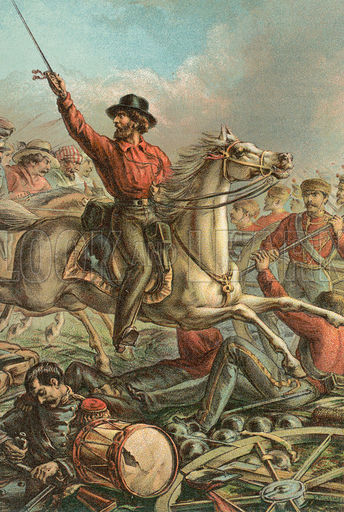 Now
Giuseppe Garibaldi returned to Italy to spread
revolution. The first time he had tried this in 1834, it hadn’t
gone well at all, and he had to flee Italy to escape arrest and
execution, so he spent the intervening years commanding a legion
of Italian expatriates on the liberal side of various South
American wars, earning great publicity worldwide. Now, Garibaldi
came home and joined the defense of the Roman Republic. Against
all odds, he managed to delay the inevitable French victory for
a few months.
Now
Giuseppe Garibaldi returned to Italy to spread
revolution. The first time he had tried this in 1834, it hadn’t
gone well at all, and he had to flee Italy to escape arrest and
execution, so he spent the intervening years commanding a legion
of Italian expatriates on the liberal side of various South
American wars, earning great publicity worldwide. Now, Garibaldi
came home and joined the defense of the Roman Republic. Against
all odds, he managed to delay the inevitable French victory for
a few months.
In May, German liberals gathered in Frankfort to talk about making one unified country out of their Central European hodgepodge of principalities. It didn’t work.
Assessment and Aftermath
The revolutions of 1848 showed just how complicated popular rule could get. The moderate leftists in the middle class had been driving democratic changes in America and Europe so far, but now the middle class realized that they had gotten most of what they wanted. They suspected that the radical poor were starting to become more dangerous to them than the old privileged nobility, so maybe it was time to quiet down and become the new conservatives. The old Left-Wing coalition split apart.
By the time his term ended in 1852, President Louis-Napoleon Bonaparte had decided that he really liked being in charge and wanted to run for president again, but the constitution didn’t allow this; however, as a Bonaparte, he wasn’t going to let trivialities like the constitution get in his way. When his term as president was about to run out, President Bonaparte had his soldiers seize presses and round up opposition leaders, and he declared himself emperor.①
With France repeating the well-worn historical path of King → Revolution → Republic → Emperor Napoleon all over again, Karl Marx observed “that all great world-historic facts and personages appear twice… the first time as tragedy, the second time as farce.”
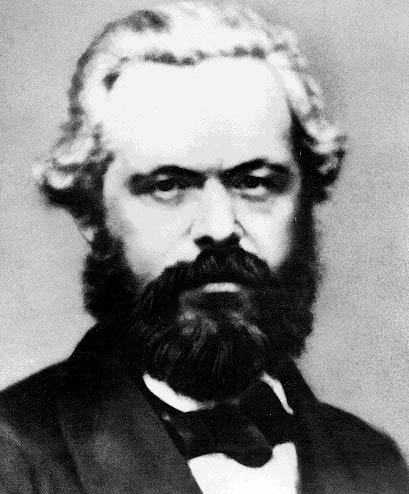 By fortuitous
coincidence, Karl Marx had published the Communist
Manifesto just before all Hell broke loose. His followers saw
him as a prophet and his enemies saw him as a dangerous
instigator. He was chased off the continent into a London exile,
but his philosophy became the core of the new far left.
By fortuitous
coincidence, Karl Marx had published the Communist
Manifesto just before all Hell broke loose. His followers saw
him as a prophet and his enemies saw him as a dangerous
instigator. He was chased off the continent into a London exile,
but his philosophy became the core of the new far left.
Marx was only one of thousands of dissidents who had to make himself scarce or suffer the consequences after 1848. The failed revolutions drove 100,000 political refugees from Italy. At the same time, European governments of the 19th Century expanded their capacity to contain and quarantine troublemakers. A term in Sainte-Pélagie Prison outside Paris was considered a rite of passage for the French left wing during Napoleon III's rule. In 1854 Napoleon III established the new penal colony of Devil’s Island in French Guyana to accommodate the growing numbers of stubborn opponents who continued to engage in strikes and rebellions. The Russians set up the notorious Peter and Paul Fortress in St. Petersburg for detention and punishment, and they exiled some 680,000 prisoners to Siberia between 1823 and 1881. Of the 150,000 convicts that Britain shipped to Australia, 3,600 had been convicted of political offenses, usually violent.
Even so, the oppressions of 19th century Europe rarely approached 20th century levels of barbarity. Between 1830 and 1834, French juries acquitted 332 out of 520 prosecutions of the press, and it was not unknown for French political prisoners to get elected to parliament while in jail. Leon Trotsky found his Russian jail cell to be “perfect for intellectual work” especially since he could work “without any danger of being arrested.”Ⓑ
Switzerland
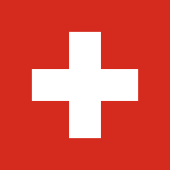 Meanwhile, in the
face of all the opposition, there was one country where
democracy bit down and held on -- Switzerland. Back in those
days Switzerland was barely a real country. It was more of a
hole in the map filled with a scruffy collection of
independent mountain communities (cantons) speaking any of
four languages, following several different varieties of
Christianity, and generally minding
Meanwhile, in the
face of all the opposition, there was one country where
democracy bit down and held on -- Switzerland. Back in those
days Switzerland was barely a real country. It was more of a
hole in the map filled with a scruffy collection of
independent mountain communities (cantons) speaking any of
four languages, following several different varieties of
Christianity, and generally minding 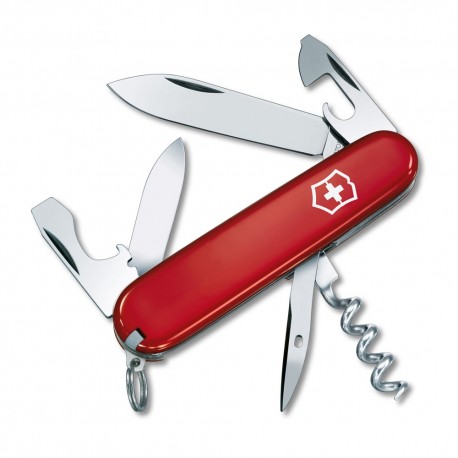 their own
business. The cantons were run by councils of respectable
burghers. They all agreed to cooperate on foreign policy and
settle their disagreements peacefully via a federal council,
but otherwise they all went their own separate ways.
their own
business. The cantons were run by councils of respectable
burghers. They all agreed to cooperate on foreign policy and
settle their disagreements peacefully via a federal council,
but otherwise they all went their own separate ways.
One problem they couldn’t solve was the ongoing dispute over the influence of the Catholic Church in conservative cantons. Because Protestant liberals wanted to end Catholic control of the schools and press censorship, the 1830 Revolution in France inspired copycat protests all across Switzerland. These imposed radically democratic constitutions on eight cantons, which now became havens for democratic troublemakers fleeing neighboring countries. These radical cantons instituted all sorts of wild novelties like universal male suffrage and free, secular public schools. They also revoked whatever privileges had been held by the Catholic Church.
Riding a backlash in the 1841 elections, conservatives replaced the Radical Party government in the canton of Luzern and turned the new public schools over to the Jesuits to run, which sort of defeated the whole point of having public schools. Mob violence both against and for the Jesuits began to claim lives back and forth, so the Catholic cantons secretly formed a Separatist League (the Sonderbund) to start their own country. When this conspiracy was uncovered, the resultant patriotic backlash elected a Radical Party majority to the federal council. They demanded the dissolution of the Separatist League, but the representatives of the rebellious cantons stormed out of the council instead.
Each side raised and equipped large armies numbering nearly a hundred thousand men under arms, but the Federal commander, General Henri Dufour, wanted to avoid a long war that would embitter the Swiss beyond any hope of reconciliation. He struck quickly and decisively into the heart of rebellious territory. It only took a few battles and about 100 deaths in November 1847 for the Sonderbund to give up.Ⓒ
With victorious liberals poised to rewrite the Swiss constitution, the surrounding conservative governments in France, Austria and Prussia sternly warned Switzerland not to do anything stupid like set up a national democracy, but then 1848 rolled around and all hell broke loose across Europe. With the big powers busy fighting their own radicals, the Swiss were free to do as they pleased. Their new 1848 constitution established a stronger federal government that could keep the cantons at peace. They created a single nationwide Swiss citizenship that applied to all cantons, along with a capital city and a national currency. Church and state were separated and the legislature was made more representative with universal male suffrage all across the country. To avoid putting too much power in anyone’s hands, the Swiss constitution, both then and now, has no single head of state. The Federal Council runs the government collectively and is chaired by a different rotating member every year.
These reforms – along with a very lucky history over the next couple of centuries that would spare them fascism, communism and both world wars – have made Switzerland the second oldest continuous democracy in the world.
If you don’t count women. If you count those, Switzerland was actually one of the last West European countries to become a real democracy, in 1971. Also, Switzerland currently has one of the highest percentages of disenfranchised immigrants in Europe (23% of all residents) so they are falling behind on universal suffrage. But, yeah, aside from that, the second oldest democracy in the world.
-Matthew White
![[Previous Chapter]](images/previous_arrow.gif) |
![[Next Chapter]](images/next_arrow.gif) |
① He called himself Napoleon III in deference to the son of the original Napoleon who ruled as Napoleon II at the age of four for a couple of weeks after Napoleon I abdicated and before the French king could settle into the palace.
Ⓐ Isser Woloch, ed., Revolution and the Meanings of Freedom in the Nineteenth Century (Stanford University Press, 1996) pp.179-180
Ⓑ
Robert Justin Goldstein, Political
Repression
in 19th Century Europe, Routledge, 2013.
Ⓒ Jonathan Steinberg, Why
Switzerland?, Cambridge University Press, 1996, pp. 42-46
Copyright © August 2018 by Matthew White
